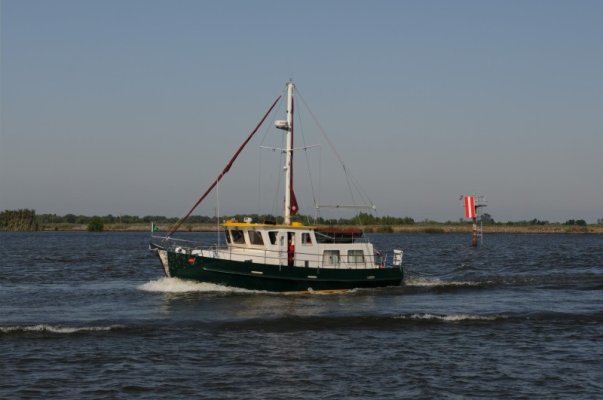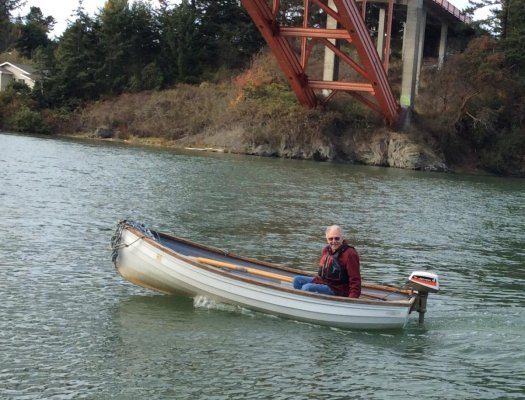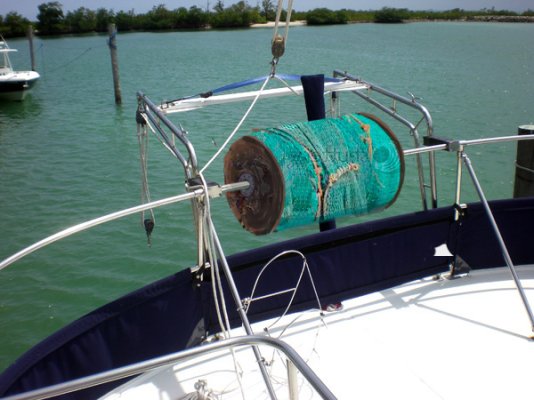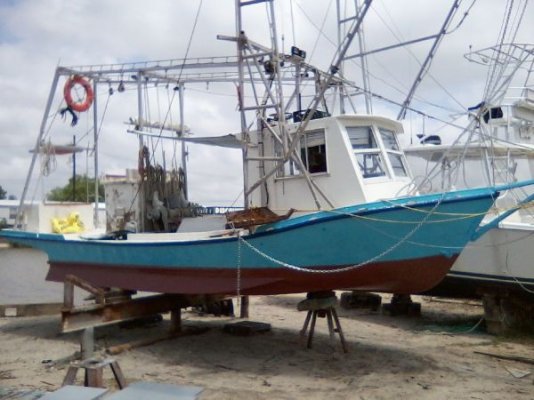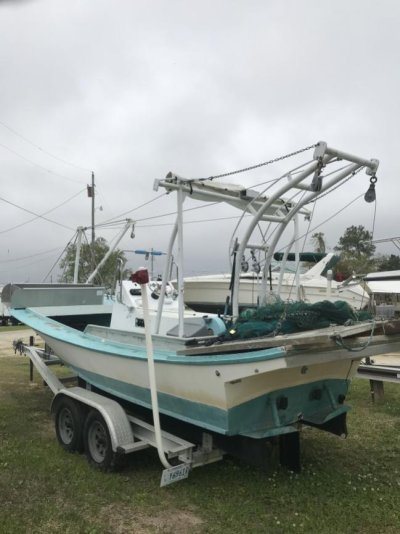Fish...
Irrespective of the actual mathematics, angles and soft or hard shape designs that makes a boat's hull into to Full Displacement, Semi Displacement or Planing forms/shapes:
I believe it is not very important that all boaters need to have studied or even to realize the thousands of detail nuances regarding different hull types
It appears [and I hope] that most boaters realize the general difference between the three hull forms.
- Full Displacement Hull = A form that simply cannot go very fast. Actually not much faster than its "hull speed"; no matter the power supplied for forward motion. Full Displacement hull shape cannot be lifted upward onto water surface for attaining a lesser square footage of bottom contact to water and therefore be enabled to at least somewhat glide/skim over the water.
- Semi Displacement Hull = A form that incorporates attributes in its shape from both Full Displacement and Planing hull design. Semi Displacement hull offers several inviting capabilities for cruising through the water. Of those, but not limited to this are: The softness of ride from FD hill design as well as the capability of somewhat reaching increased speed realized in the P hull design.
- Planing Hull = A form that can be made to rise upward in water to the point where much of its bottom's square footage contact with water is considerably diminished and its shape brings the bottom surface into at least a somewhat skimming position over the top-edge of water surface.
There are many incrementally differing renditions available for each of the three hull designs. Hundreds of thousand boats [used and new] exist in each hull design.
I believe it is extremely important for "new to boating" people to first list the how, where, when and for what purpose they are going to use the boat they plan to purchase. This will give them a basis to understand size/layout of boat they need and the speed needed from the boat once they get it. From that basis point the new boater has lots of research, reading and boat shopping to accomplish that will lead to getting their "first" boat.

For us "Old Salts" [of which Fish, I presume you are one!] boat/marine doings and life will go on to our end. Always learning, always watching, always wishing we knew even more!


